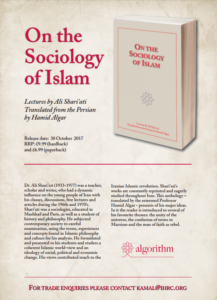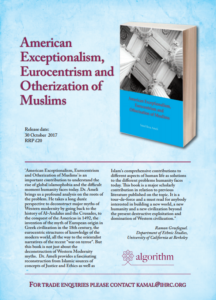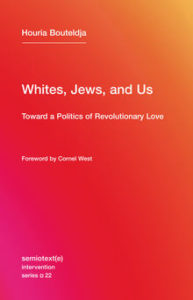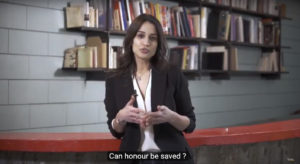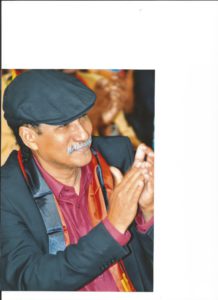In December across Europe events are being organized on islamophobia.
United Kingdom
In the United Kingdom two events have been organized.
Edinburgh
On Friday 8 Dec 2017 from 6:00pm to 9:45pm SACC will host an event in Edinburgh. A recent survey by Samena Dean found that more than half of Muslim school students interviewed in Edinburgh had experienced Islamophobia. Anti-Muslim racism is commonplace and growing. It is reflected in hate crime, unlawful discrimination, discriminatory and hostile social attitudes and institutional racism. Schools, colleges and universities are not immune to this trend.
Islamophobia has assisted and driven the growth of other forms of xenophobia that are now being felt across the UK by EU citizens threatened by Brexit. It has paved Donald Trump’s path to the White House. Across Europe it is fuelling the growth of far-right parties that, once empowered, threaten Jews, LGBT people and disabled people.
Our educational institutions are uniquely well-placed to shape social attitudes and community relations in tomorrow’s Scotland. It is an opportunity we cannot afford to miss. If you care about education, whether as an educator, a student or a member of the wider community, please come along to the conference. It’s a chance to learn about the experiences of others and discuss the way forward.
There are two parallel workshops from 6-7 pm.
A: “Can we talk about Islamophobia” – workshop mainly for young Muslims, but open to everyone
- “Radicalising anti-racism” – round-table discussion on how to move towards radically anti-racist education
There is a break for food from 7.00-7.20pm followed by two plenary session:
7.20-8.30pm: Plenary I. “What is Islamophobia?”
8.40-9.45pm: Plenary II. “Decolonising Education”
Speakers include: Arzu Merali (co-founder and head of research, IHRC, and leading member of DIN), Tasneem Ali (MWAE), Richard Haley (SACC), Sofiah MacLeod (Scottish Palestine Solidarity Campaign) and Yahya Barry. Chaired by Zahid Ali.
The event is at Augustine United Church, 41-43 George IV Bridge, Edinburgh EH6 4BY. Admission is free. Donations are welcome.
Facebook: http://www.sacc.org.uk/events/2017/islamophobia-conference-2017 / https://www.facebook.com/saccRights/
London
On December 10 IHRC, member of DIN, will host an event to discuss the rise of islamophobia.
Last year’s Islamophobia conference discussed the creation of a police state in the UK. While the policies aimed at surveilling, criminalising and extraditing Muslims, refugees and migrants have continued unabated, we have seen alongside this the alarming growth of nativism in the UK and around the world.
Nativism is the political policy of promoting the interests of “native” inhabitants against those of “immigrants”. It is racism masquerading as patriotism.
This racism reared its ugly head during the Brexit debates. Anti-immigrant sentiments were fanned to ensure a victory for the leave camp. Since then, incidents of racism and Islamophobia have been on the rise. Following the vote, people were attacked on the streets and told they now had to leave the UK since the leave vote was successful. The ‘leave’ result has further legitimised the environment of hate we already exist in.
The election of Trump in America has allowed nativism to enter mainstream politics. He branded Mexicans as lazy and as rapists, Muslims as terrorists and imposed a ‘Muslim Ban’. His anti-immigration stance and his plan for a wall on the Mexican border has resonated with people who feel they have been marginalised and silenced by immigrants, foreigners, the ‘other’ who are destroying their way of life. Trump’s rise to power mirrors a rise in hate crimes against minorities. Black communities continue to struggle against systemic violence, as well as racism from their fellow citizens, while Trump publicly undermines any criticism voiced by black communities. Trump’s presidency has emboldened Nazis to openly march on the streets again, galvanised the so-called alt-right and fractured community relations across America.
Across Europe we see a similar trend; the rise of the far-right has been fuelled by nativist sentiments. Ideas of foreigners taking over, of destroying indigenous cultures and imposing their own alien way of life have been the main talking points for the likes of the Afd in Germany, Marine Le Pen in France and Geert Wilders in the Netherlands. Recent elections in Germany, Austria, France and the Czech Republic saw major electoral gains for far-right parties / candidates. Europe’s shift to the right signals a new era of nativist policies, and foreshadows a future of uncertainty and instability for minority communities.
Location: P21 Gallery, 21 Chalton St, Kings Cross, London NW1 1JD (nearest stations: Kings Cross St. Pancras / Euston / Euston Square).
Date and time: December 10, from 10.30am – 4.30pm
Speakers:
- Dr Luis Manuel Hernandez Aguilar
- Arzu Merali
- Amrit Wilson
- Hatem Bazian
- Phil Miller
- Martjin de Koning
Website: http://www.ihrc.org.uk/events/11979-islamophobia-conference-2017-the-rise-of-nativism
Facebook: https://www.facebook.com/Islamic-Human-Rights-Commission-109724959498/
Spain
In Madrid, Spain, Kale Amenge, member of DIN, and uMMA in collaboration with Bruselles Pantheres will host an event to confront the growing racism in the Spanish context and to build a Roma-Muslim alliance to fight together both islamophobia and anti-gipsyism as forms of structural racism in the Spanish state. The event will be held at La Enredadera de Tetuán, C/ Anastasio Herrero 10, Madrid on December 10 2017 (start 17.00 hr).
Facebook: https://www.facebook.com/events/1858522374459001/
France
In France a coalition of organizations are organizing an event on December 10th in Saint-Denis. The coalition consists of the following organizations: AFD International, Association Commission “Islam & laïcité”, CCIF, CFPE, CCI, Femmes plurielles, Fondation Frantz Fanon, Identité plurielle, IJAN, NPA, PIR (member of DIN), PSM, UJFP.
This years conference is entitled “Macron or the permanent state of emergency”.
There are three plenary sessions :
1st plenary session: 9.30 a.m. to 12: Are antiterrorist law efficient in the fight against terrorism?
2d plenary session: 1.30 p.m. to 3 p.m.: The identity attack against public liberties: attacks from everywhere.
3d plenary session: 3 p.m. to 4.30 p.m.: Silencing political antiracist activists: the other face of the identity attack.
The are followed by two workshops from 4.45 p.m. to 5.30p.m.
- The struggle against discriminations on the workplace and the consequences of the labor law.
- Stigmatisation of territories: from Saint-Denis to Molenbeek
A fourth plenary session from 6 p.m. to 7 p.m. concludes with a discussion on the perspectives for the future.
The location is : Bourse du Travail, 9 rue Genin, Saint-Denis (France).
Facebook page: https://www.facebook.com/Conf%C3%A9rence-Internationale-contre-lIslamophobie-137999883520915/
Facebook event: https://www.facebook.com/events/243921642807102/
Sweden
A three day conference in Sweden will present a decolonial analysis of islamophobia.
The conference aims:
- To create a space for dissemination of decolonial knowledge ;
- To raise the question of islamophobia and discuss it on local, national and international levels ;
- To create awareness of Morayma, member of DIN, and facilitate networking between organizations and activists.
Program :
- Friday Dec 15th (evening) – Workshop, 2 hours
- Saturday Dec 16th – Conference, 6 hours
- Sunday Dec 17th – Workshop/lecture, 2-4 hours
Speakers are : Ramon Grosfoguel, Hatem Bazian and Sandew Hira.
The conference will be held in Götenborg, Sweden.
Registration : www.morayma.se

